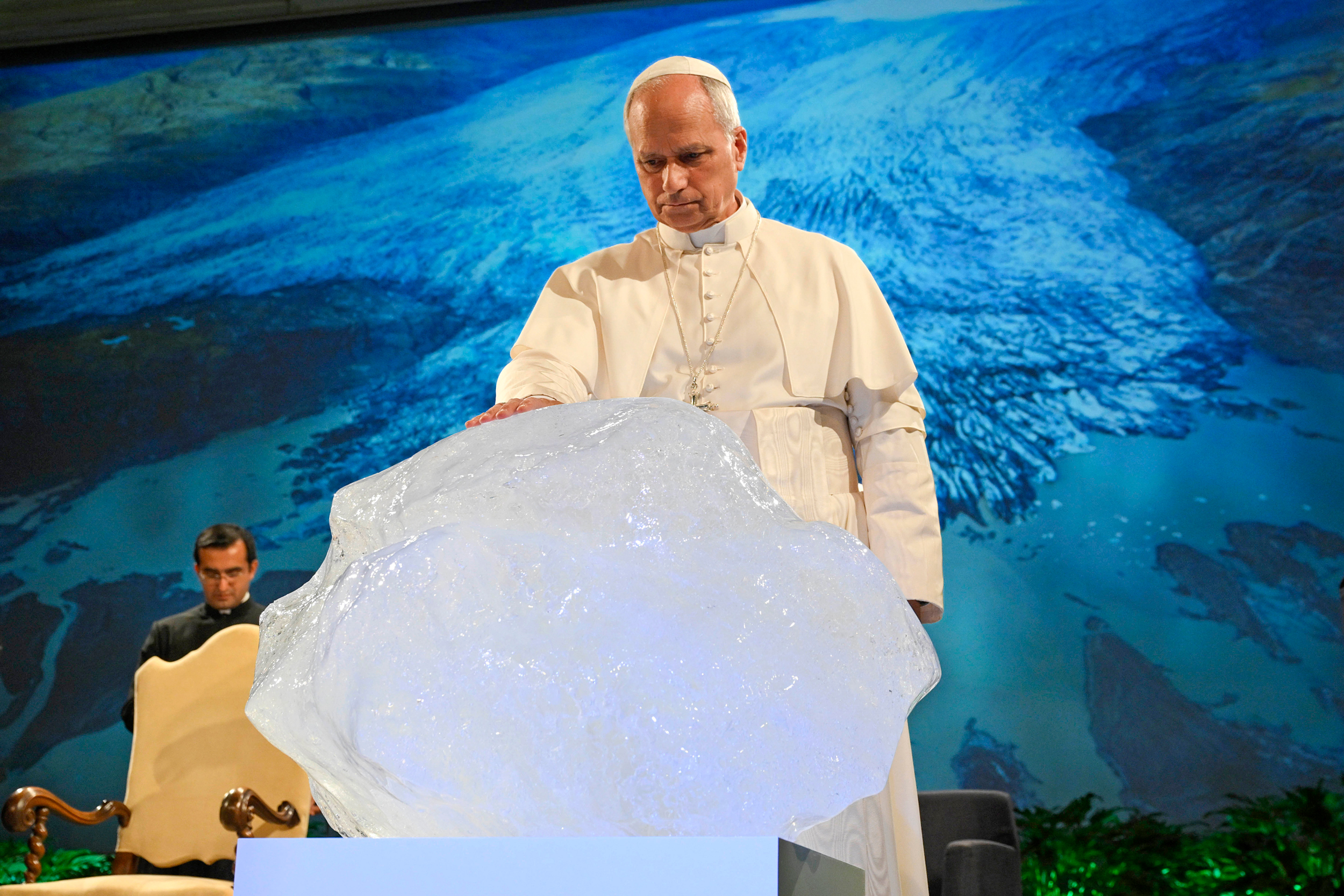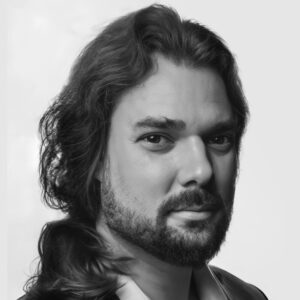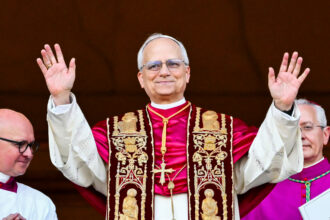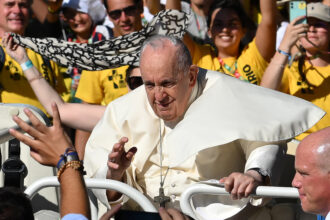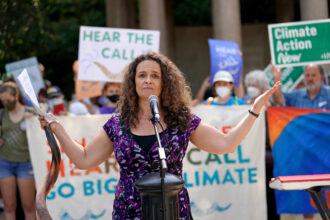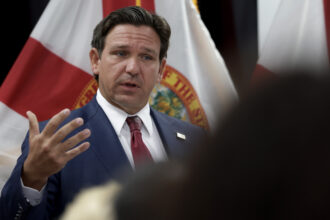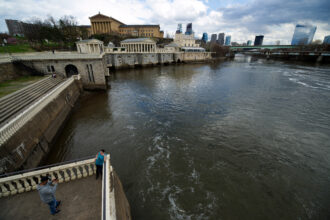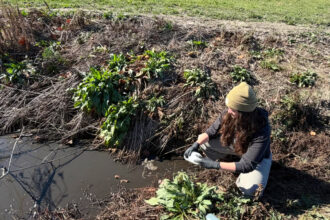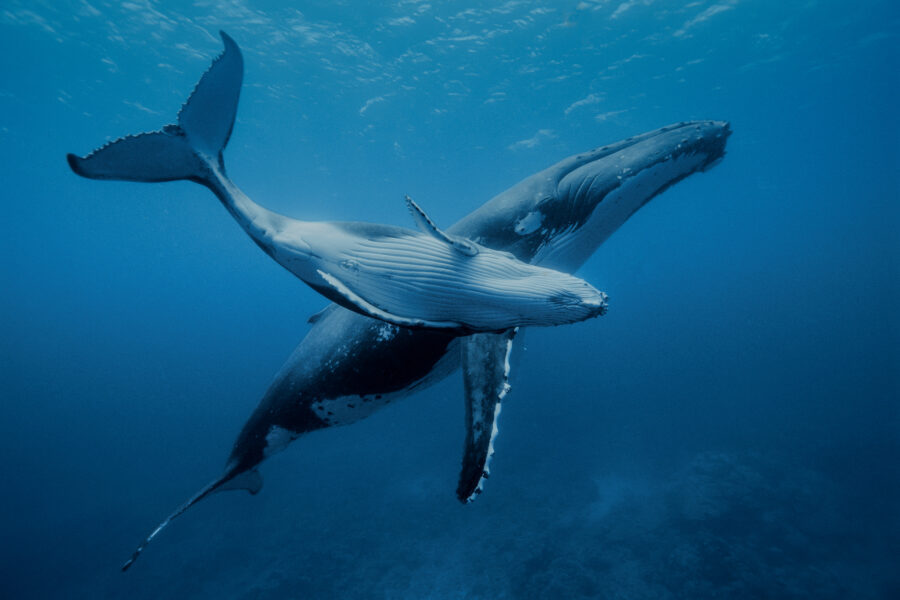Pope Leo on Wednesday spoke before a slowly melting chunk of glacial ice in Vatican City in his first address on climate change. On a stage adorned with ferns and lush plants, Leo addressed a crowd of roughly 1,000 attendees representing Indigenous groups and environmental organizations across the world. The remarks were the strongest signal yet that the new pope intends to continue his predecessor’s legacy on climate issues, placing the Catholic Church squarely in the fight against global warming.
The event marked the start of a climate conference commemorating the 10-year anniversary of Laudato Si’, Pope Francis’ landmark papal encyclical on climate issues. Leo emphasized how in the decade since Laudato Si’—which incorporated protection of the climate into the teachings of the Catholic Church—the problems Francis highlighted have only become graver.
Leo called for citizens to pressure their governments into action on climate issues. “Citizens need to take an active role in political decision-making at national, regional and local levels,” Leo said. “Only then will it be possible to mitigate the damage done to the environment.”
Placing his hand on the piece of ice taken from a glacier in Greenland, Leo blessed the massive ice block in a symbolic display of concern over the warming planet. Former California governor Arnold Schwarzenegger, who has long campaigned for renewable energy, also spoke alongside Leo, urging the world to “terminate fossil fuels.”
Leo’s address, which often invoked the language Francis used when speaking about the environment, also called on the attendees of next month’s U.N. climate conference in Belém, Brazil, to hear “the cry of the Earth and the cry of the poor.” The speech, which came days after President Trump dismissed climate change as a “con,” triggered immediate backlash from U.S. conservatives, who derided the first U.S. pope as being “woke.”
Continuing Francis’ Environmental Mission
Pope Francis, who died earlier this year, placed climate and ecology—alongside concern for the poor—as central to his papacy, thrusting the Catholic Church into the world’s debate over climate change. In his 2015 encyclical Laudato Si’, an instruction addressed to all Catholic leaders, Francis linked ecology and theology, framing the destruction of the environment as a moral and spiritual issue.
Laudato Si’ asserted human activity to be the unambiguous driver of climate change and castigated the inaction of the world’s political leaders as a dereliction of moral duty. It was one of the most influential statements on climate change ever made by a religious leader.
In subsequent teachings and pronouncements, Francis consistently pushed a concern for the environment past the pastoral and into the political realm. He stressed how a warming Earth would disproportionately hurt the poor, insisted that wealthy societies bore a greater share of responsibility for cutting emissions and called for international systemic reform.
Francis’ stance on climate divided Catholics in the United States, and many U.S. bishops ignored or minimized his teachings on ecology. The papal moral authority Francis invoked was also confronted with institutional inertia and political backlash. Today the Laudato Si’ teaching remains unevenly adopted across the parish and episcopal levels of the Church. Analysts expected Leo to tack a more conservative political course than his predecessor, given his embrace of papal tradition and past statements that expressed centrist views. But in recent months, Leo has made repeated moves to further the environmental legacy of Francis.
In the last years of his life, Francis outlined an ecology and sustainability project that would serve as a living demonstration of his encyclical’s teaching. The Borgo Laudato Si’ was planned as an educational center focused on ecological leadership and sustainable agriculture. That vision was finally realized last month, when Leo inaugurated the project, which is housed on the papal estate at Castel Gandolfo, southeast of Rome.
Leo has also taken action to realize Pope Francis’ vision of the Vatican becoming the world’s first carbon-neutral state. In June, Leo visited a 1,000-acre field north of Rome that Francis hoped to turn into a massive solar farm. Italy reached an agreement in July to push the project forward into development.
This story is funded by readers like you.
Our nonprofit newsroom provides award-winning climate coverage free of charge and advertising. We rely on donations from readers like you to keep going. Please donate now to support our work.
Donate NowLeo’s Political Collision With Trump
The timing of Leo’s speech on Wednesday provided a stark counterpoint to President Trump’s recent attacks on climate efforts. Days earlier, Trump told the U.N. General Assembly that climate change was “the greatest con job ever perpetrated” and warned fellow world leaders in New York against falling for “this green scam.”
Trump removed the United States from the Paris agreement on climate change for the second time this year, having originally withdrawn during his first term, a move undone by President Biden. Trump’s administration has also scrapped renewable energy projects, propped up fossil fuels and taken aim at regulation of emissions.
Leo’s public orations—Wednesday’s climate speech, which followed his condemnation last month of U.S. treatment of immigrants—are gradually positioning him in opposition to the Trump administration. Initially celebrated by conservative Catholics after his election, Leo is starting to face the same political headwinds as his predecessor.
Partisan backlash from conservative U.S. pundits online swiftly followed Leo’s climate address Wednesday. The symbolic blessing of a chunk of glacial ice provoked ridicule from right-wing commentators such as podcaster Matt Walsh, who derided it as a “weird hippy ‘climate justice’ ritual” in a post on social media platform X.
Increasing U.S. political polarization around the issue of climate policy may put the new pope at odds with the leaders of his home country.
“God will ask us if we have cultivated and cared for the world that he created … and if we have taken care of our brothers and sisters,” Leo said at the end of his remarks on Wednesday. “What will be our answer?”
About This Story
Perhaps you noticed: This story, like all the news we publish, is free to read. That’s because Inside Climate News is a 501c3 nonprofit organization. We do not charge a subscription fee, lock our news behind a paywall, or clutter our website with ads. We make our news on climate and the environment freely available to you and anyone who wants it.
That’s not all. We also share our news for free with scores of other media organizations around the country. Many of them can’t afford to do environmental journalism of their own. We’ve built bureaus from coast to coast to report local stories, collaborate with local newsrooms and co-publish articles so that this vital work is shared as widely as possible.
Two of us launched ICN in 2007. Six years later we earned a Pulitzer Prize for National Reporting, and now we run the oldest and largest dedicated climate newsroom in the nation. We tell the story in all its complexity. We hold polluters accountable. We expose environmental injustice. We debunk misinformation. We scrutinize solutions and inspire action.
Donations from readers like you fund every aspect of what we do. If you don’t already, will you support our ongoing work, our reporting on the biggest crisis facing our planet, and help us reach even more readers in more places?
Please take a moment to make a tax-deductible donation. Every one of them makes a difference.
Thank you,


